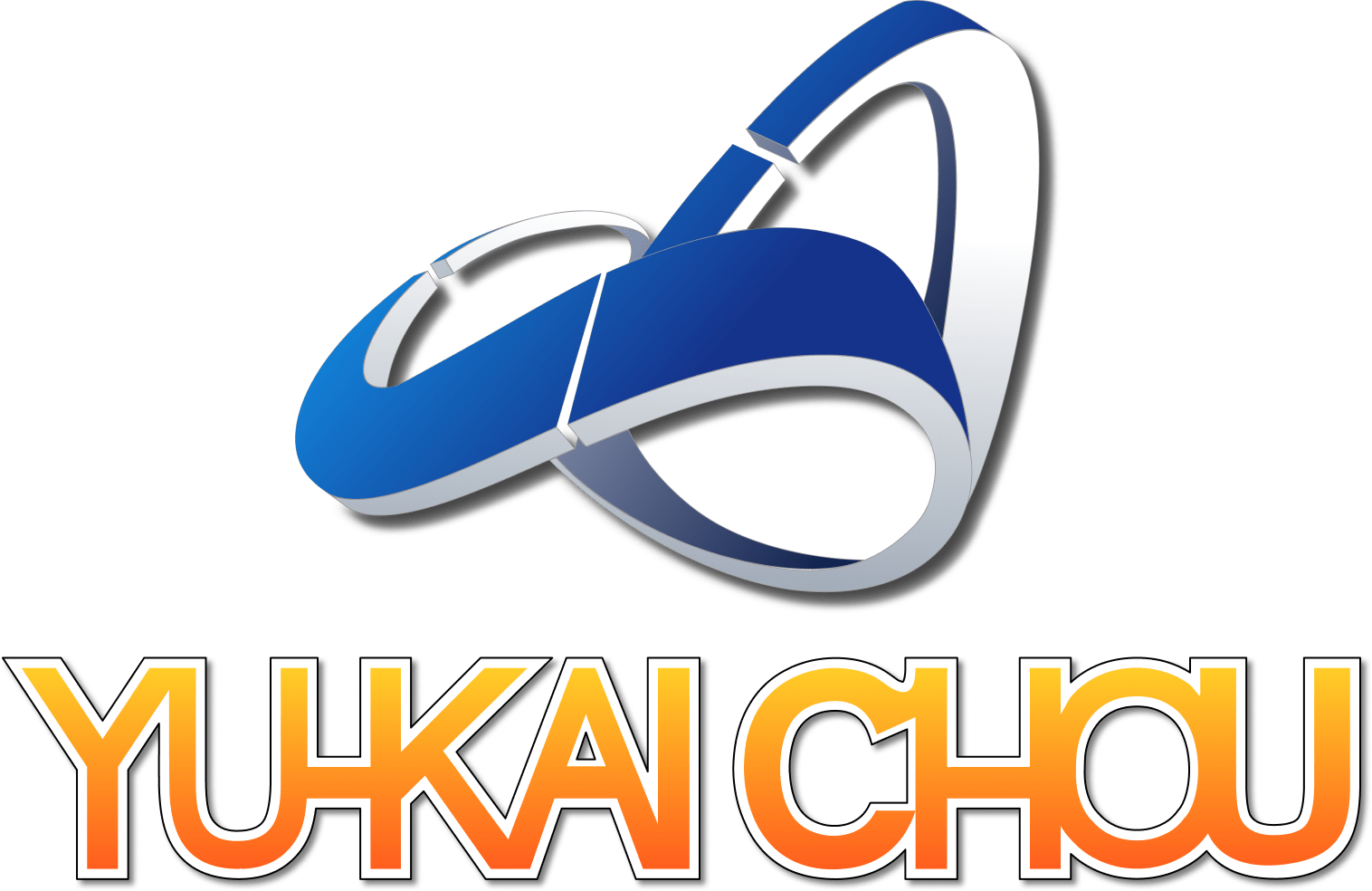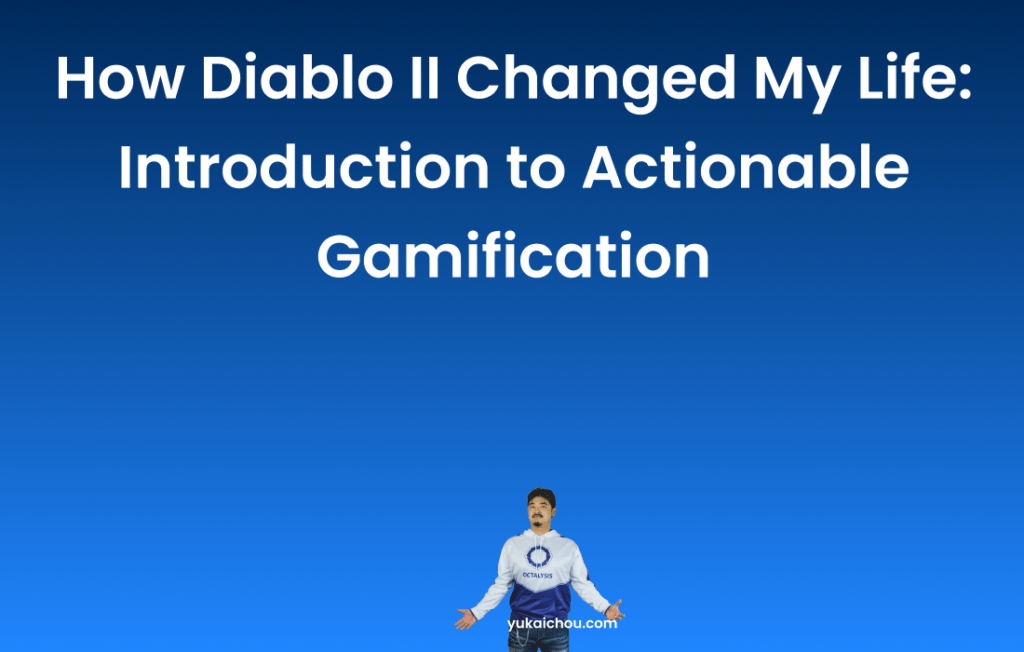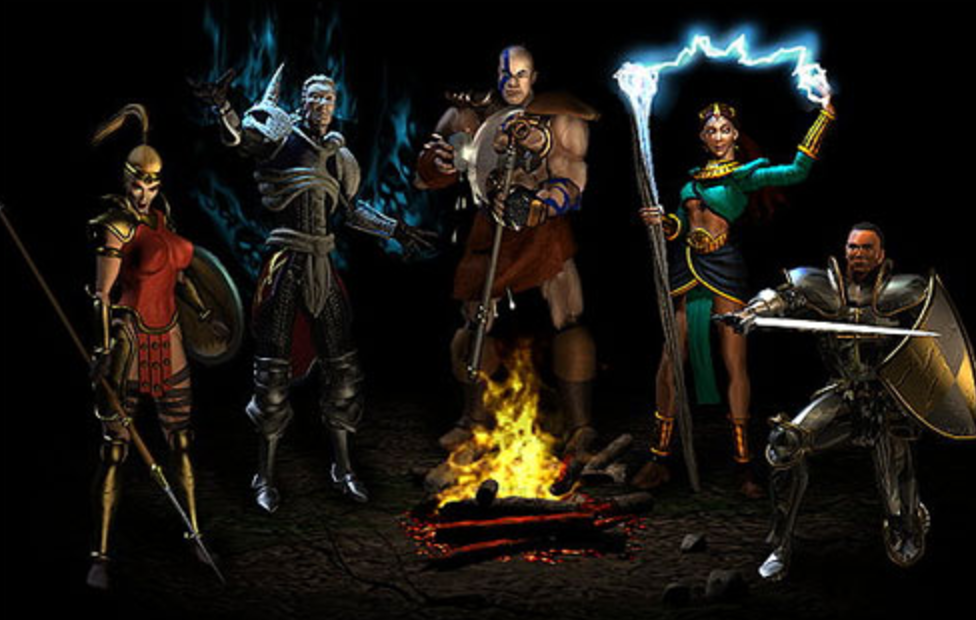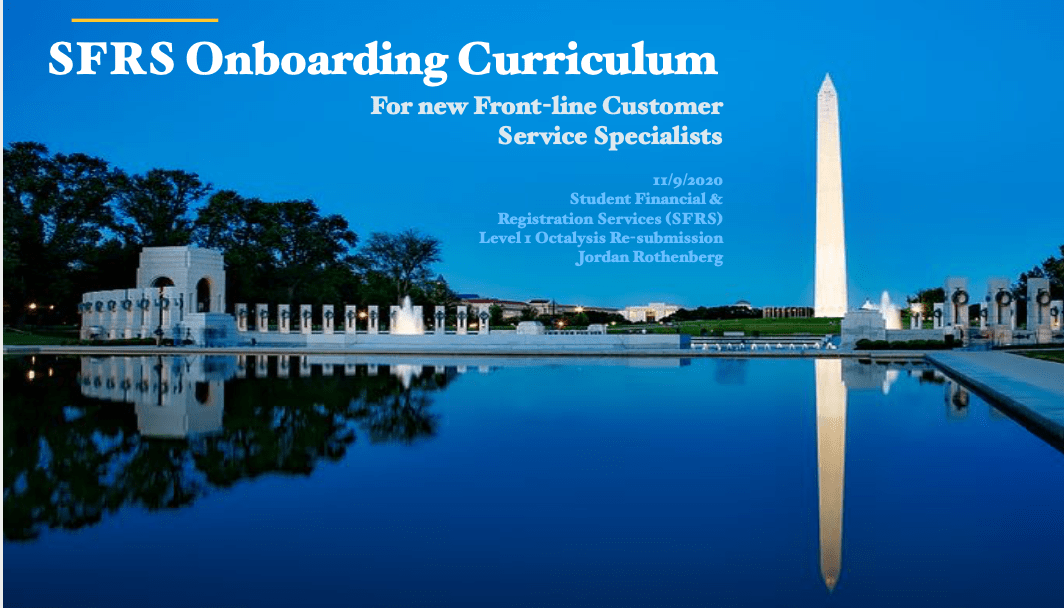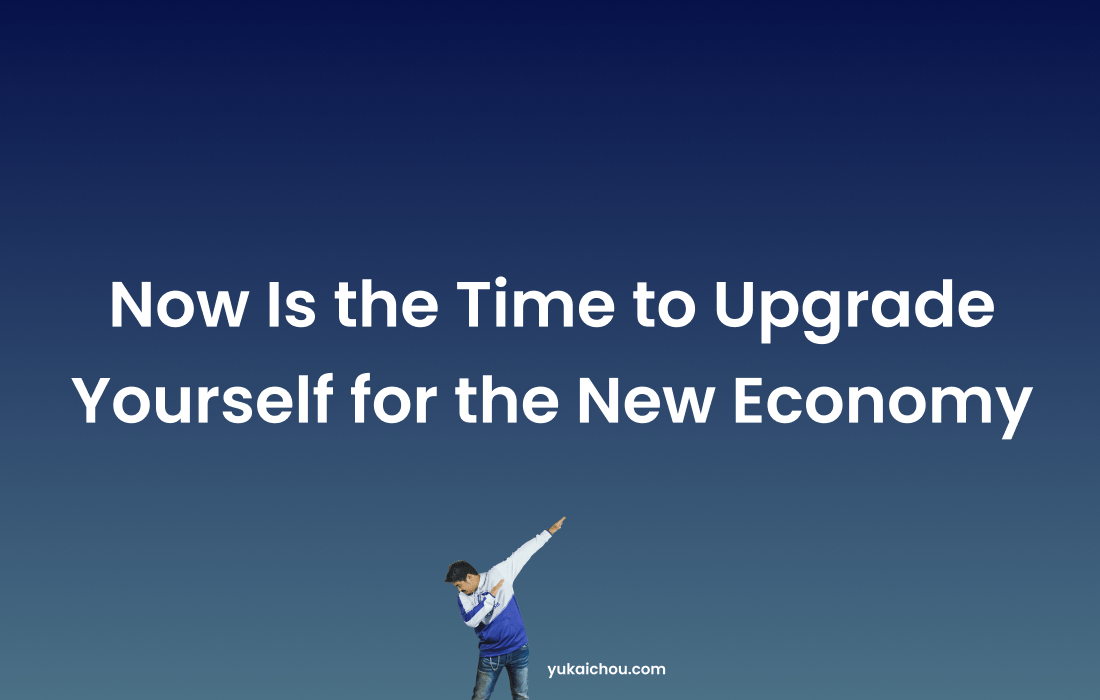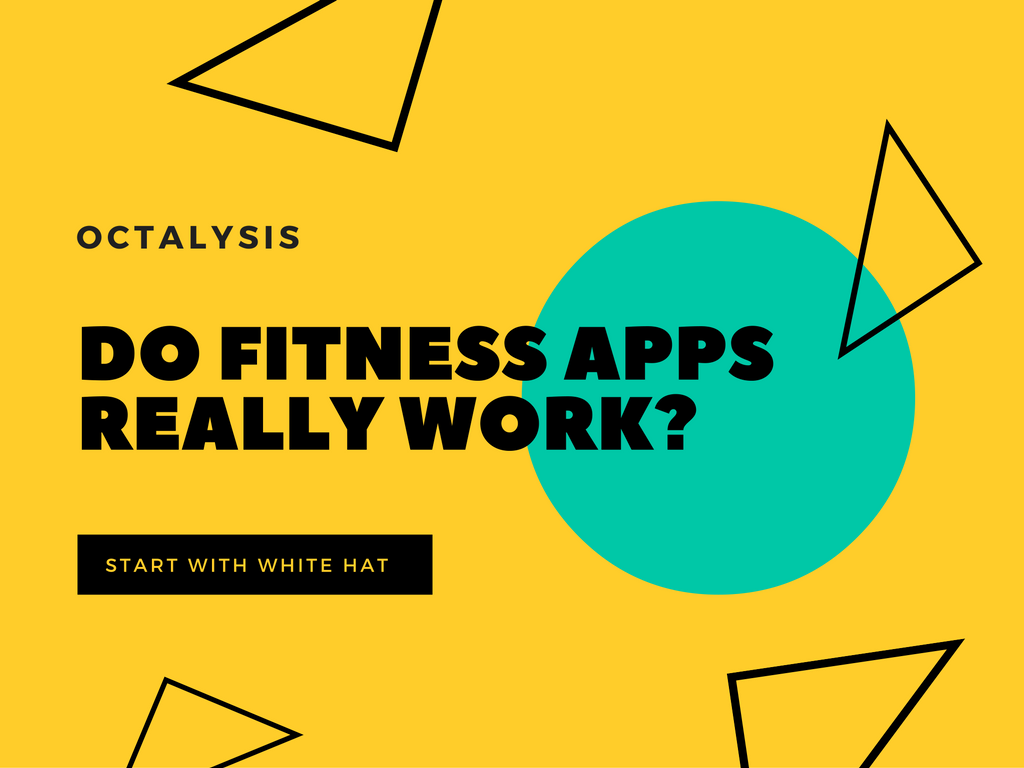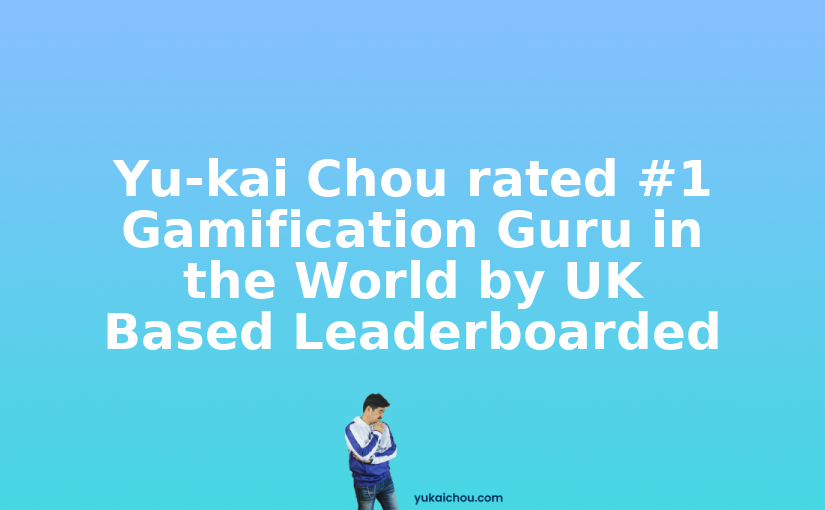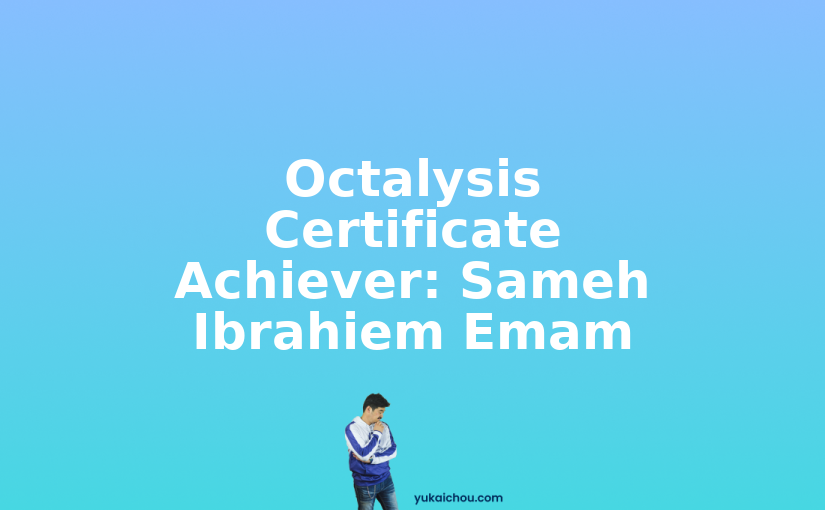This is an excerpt from the introduction of Actionable Gamification: Beyond Points, Badges, and Leaderboards. Buy a copy here or listen on Audible.
How a Game changed my Life
On a seemingly regular morning in 2003, I woke up feeling different. I felt utterly unenthusiastic about the new day. There was nothing to look forward to – no demons to slay, no gears to perfect, no drops to loot and no Excel spreadsheets to strategize on. That was the first morning after I decided to quit Diablo II, a computer based role- play-game (RPG) developed by Blizzard Entertainment.
And I felt extremely empty.
Little did I know that I was going through one of the most treacher- ous effects stemming from black hat game design. Something I now call the “Sunk Cost Prison.”
But it was that morning, that I also had the most impactful epiphany in my life, something that propelled me from a slightly-above- average student, to go on to start my first business during my first year of college at UCLA; to become a guest lecturer at Stanford University by twenty-three, raise over $1 million a year later, and finally become an international keynote speaker and recognized consultant in the field of gamification by my late twenties.
More importantly, this deep revelation ensured that I would become passionate and excited about my work every single day since.
I am sharing this with you not to sound conceited (after all, you are already reading my book), but because I truly believe if anyone was to take what I have learned during this epiphany to heart, they would likely do even better in a shorter amount of time, without all the fumbling and stumbling I went through.
Diablo II: my Epiphany
In 2003, like many students of my generation, I was a heavy gamer. In each game I played, I was very competitive and always strived to obtain the highest score. I was almost incapable of playing a game casually. It was either all or nothing.
As part of my obsession, I would generate complex spreadsheets to help me determine the exact combos I would need for playing optimally. (In Chapter 7 we will explore how many gamers do this.) I would read strategy guides while in the restroom and post regularly on forums, becoming a known leader within various gaming communities. Once I even broke into my college buddy, Jun Loayza’s apartment while he was still in class, entering through the window after removing the screen, just to practice a game he owned called “Super Smash Bros Melee.” (Eventually, Jun and I became Co- Founders of many exciting projects in the years to come). As you can see, I was fairly obsessed with gaming.
Back then however, most of my time was heavily invested in playing Diablo II. My friends and I would spend hours every day leveling up. I had more than 5 characters above Level 90 and a couple above level 96. In the game world this means I’ve likely logged over a thousand hours on this one game. If I played for two hours every single day for two straight years, it would still just barely exceed fourteen hundred hours. Quite intense, I know.
But at one point, as most gamers do, my friends began to quit playing Diablo II and moved on to other new games. Eventually I decided to quit as well since I didn’t want to play alone. It was during this transition that a sudden sense of ennui (or weariness) caught me by surprise.
I felt depressingly empty. I thought to myself, “I’ve spent thousands upon thousands of hours getting more experience, leveling up, accumulating more gold, collecting better gear…and now I end up with nothing.” Was there really no meaning to all the hours I had spent playing in the past few years? What if I had spent all this time learning a new language, or playing the violin instead? I would be “high level” in real life, instead of in some digital world of escapism.
This emptiness brought a rude, but important awakening. How could I instead, play a game that everyone is playing but the outcomes would actually mean something in the real world?
The First Game I Designed
I realized the game I was looking for was simply life itself.
If I were my own role-playing game character, I would never just stay in town, be idle and do nothing – the real life equivalent of watching TV, “hanging out” and leaving dreams unfulfilled. Of course not! I would go out into the wilderness, defeat monsters, gain experience, learn new skills, accumulate resources, ally myself with those who have complementary skills, learn from those who were of a higher level than I, and seek to conquer exciting quests.
The only problem is, unlike most games with a computer interface, life does not have clear objectives, visual cues to tell me what to do, or feedback mechanics to show me how I have advanced in it. I had to design my own game, along with clear goals, meaningful quests, and creative feedback systems. Effectively, I had to transform life into an entire adventure where I, the player, could advance and grow in.
This realization started my journey of personal growth and en- trepreneurial pursuits. My life became my game and I was deter- mined to become a high-level player in it. Despite being young, I felt my years as a competitive gamer had taught me how to master this new game of life.
Designing my life then became a decade long journey of addressing two intriguing design questions:
1. How to make games more meaningful?
2. How to make life more fun?
Little did I know back then that this lonely passion from 2003 would become one of the hottest new industries and buzzwords that people now commonly throw around as the term “Gamification.”
– – –
This is an excerpt from Actionable Gamification: Beyond Points, Badges, and Leaderboards. Buy a copy here or listen on Audible.
